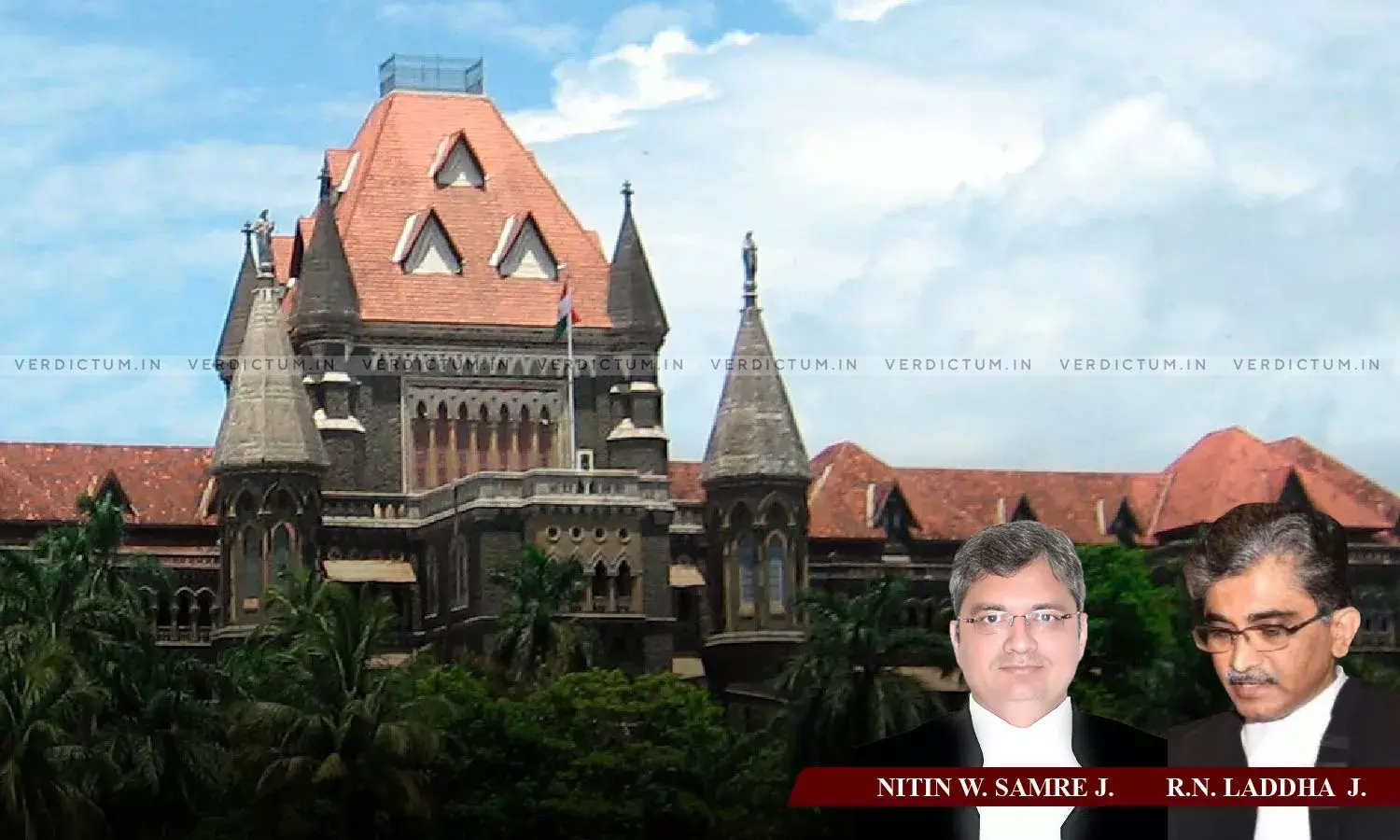Conviction Can Be Made On Basis Of Dying Declaration That Inspires Confidence, Presence Of Magistrate Not Necessary- Bombay HC

A Bombay High Court Bench of Justice Nitin W. Samre and Justice R.N. Laddha has reiterated that a dying declaration cannot be discarded merely on the fact that it was made to a Police Officer instead of a Magistrate. In that context, it was also observed that the conviction of a person could be made solely on the basis of a dying declaration which inspires the confidence of the Court.
Counsel Abhishek Avchat appeared for the appellant-accused, while Additional Prosecutor GP Mulekar appeared for the respondent-State.
In this case, the accused was an addict of liquor who frequently threatened his wife. One morning, the accused consumed alcohol and raked up a quarrel, following which he poured kerosene on his wife and set her on fire. She suffered burn injuries on her face, chest, abdomen and thighs.
Once she was shifted to the hospital and was examined, the doctor found her in a fit condition to give a statement. The PHC recorded her statement in the presence of the doctor, wherein she alleged that her husband/accused poured kerosene on her person and set her ablaze. Subsequently, she succumbed to burn injuries.
The Sessions Judge convicted the accused for committing an offence punishable under Section 302 of the IPC, by relying on the dying declaration made and the testimony of the witnesses and documents. The accused was sentenced to undergo imprisonment for life together with payment of the fine of Rs. 500/-. Aggrieved, the accused approached the High Court.
The Court observed that "It is a settled position of law that a dying declaration must not necessarily be made to a Magistrate only. What is essentially required is that the person who records a dying declaration must be satisfied that the deceased was in a fit state of mind.".
It further relied on a catena of judgments, including Jagbir Singh v/s. State (NCT of Delhi), to hold that "the mere fact that the dying declaration was recorded by a Police Official cannot be a ground to discard the same. It is for the defence to demonstrate that the Police Official has some agenda or motive to record a false statement or to fabricate the statement of the victim of the crime. Conviction of a person can be made solely on the basis of a dying declaration which inspires the confidence of the Court. If there is nothing suspicious about the declaration, no corroboration is necessary. The Court must be satisfied that there is no tutoring or prompting."
In that context, the Court noted that "There is no acceptable material or circumstances to suspect that the PHC Mr Waghule (PW1), who recorded the dying declaration or the Medical Officer (PW2), had any animus against the accused or were in any way interested in fabricating a dying declaration. In such circumstances, the dying declaration recorded by the PW1, who was performing his official duties, sufficiently assures that the deceased was capable of making the dying declaration. On the next count, as to whether the dying declaration was voluntary and true and free from tutoring or prompting, it is seen from the record, more particularly the hospital papers, that when the deceased was admitted to the Sassoon Hospital, the accused was present with her. This fact automatically rules out the possibility of tutoring the deceased to implicate the accused falsely in the crime. Even the evidence of PW2 shows that at the time of recording the dying declaration of the deceased her relatives were sent out."
Therefore, the Court dismissed the appeal while holding that "in our overall view of the matter, we are not convinced with the case of the defence that the accused suffered from accidental burn injuries, and the instant case is not one of homicidal death. The trial Court has discussed the entire evidence in detail and, in our opinion, has reached the right conclusion that the prosecution has been able to establish the case against the accused beyond a reasonable doubt."
Cause Title: Uttam Anna Lande v. State of Maharashtra
Click here to read/download the Judgment

